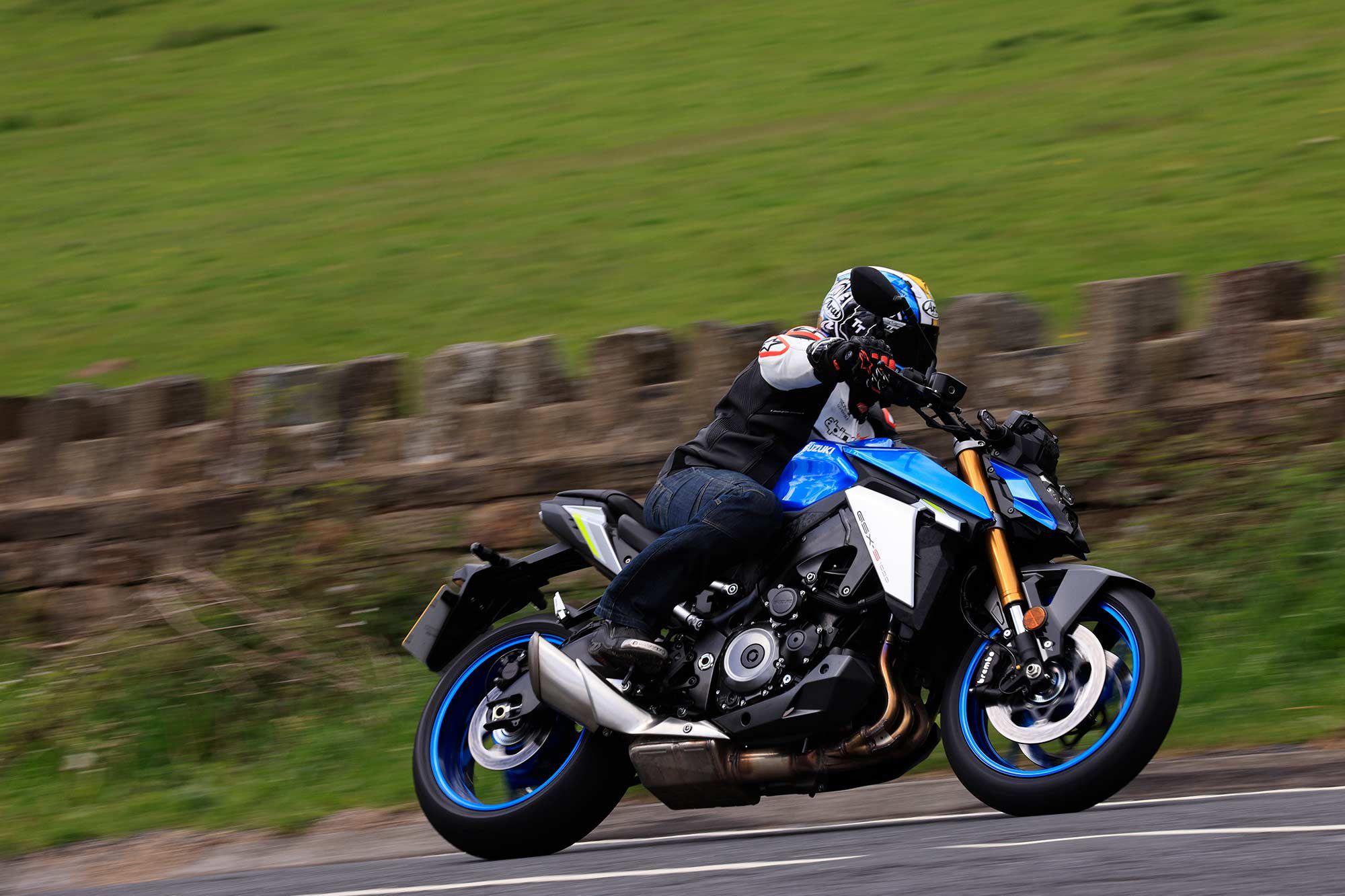
Aprilia’s 2021 Tuono V4 Factory and Triumph’s new Speed Triple 1200RS are attracting all the headlines, but perhaps the best value naked bike lurks in the shadows. Low on tech but high on real world performance and value for money, Suzuki’s GSX-S1000 is a motorcycle value-conscious riders should be looking at.
We have to start with the engine. Why? Because the GSX-S1000′s inline-four is simply an evolution of the 2005 Suzuki GSX-R1000 K5, a legend among sportbikes, with tweaks for 2021 centered on making the now Euro 5-compliant power unit even easier to use. Making it even more brilliant.
Related: Motorcycle Reviews And Comparisons
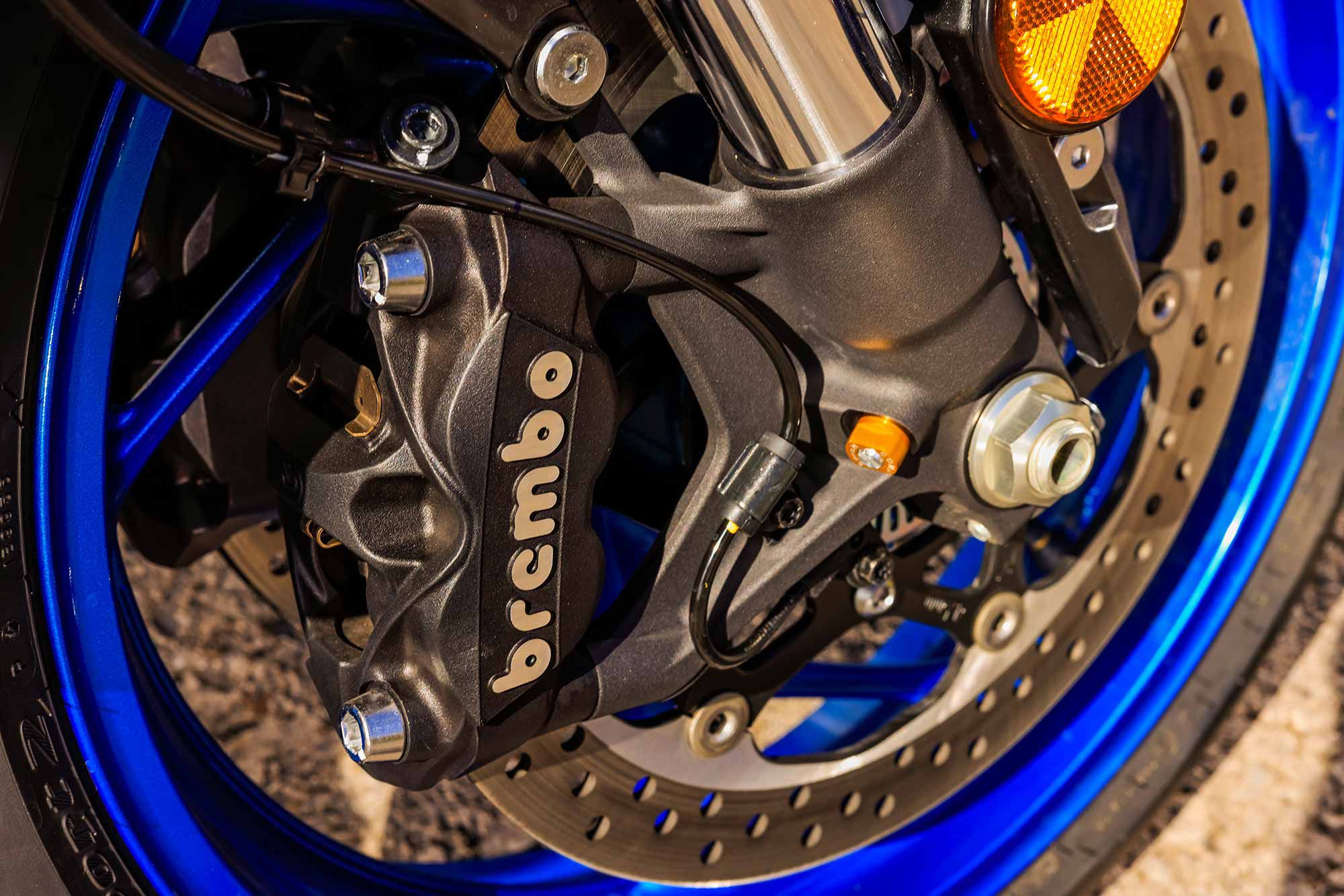
There’s a barely detectable 2 hp increase and the new peak torque figure is actually fractionally lower, but the all-important torque curve is now smoother and fatter, with a noticeable increase in the mid-to-high rpm range.
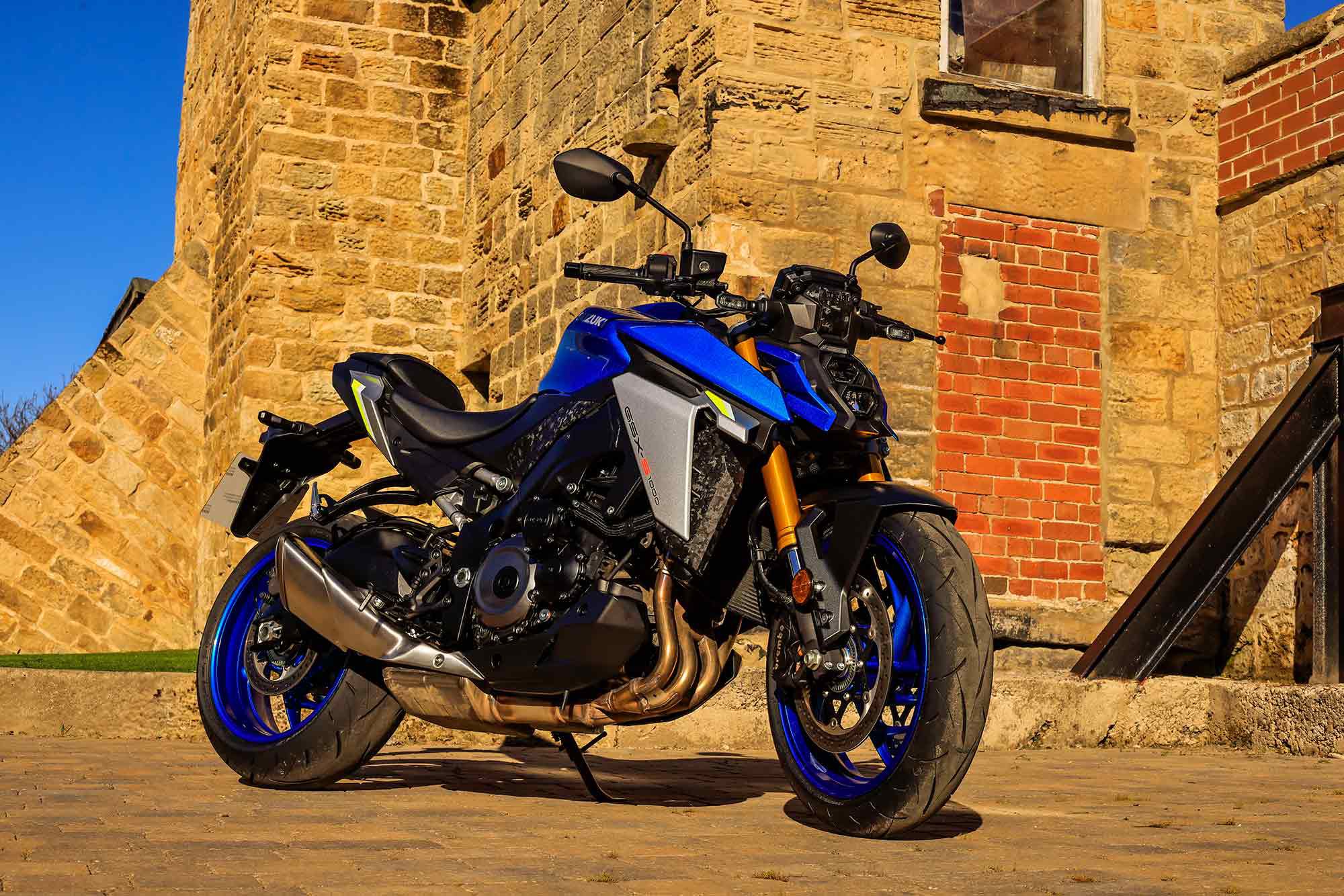
In fact, the new GSX-S’s midrange delivery is inspiring. It drives like a streetbike with a far greater capacity as it serves up bucketloads of grunt—and does so from almost anywhere in the revs. Time and again during our test I would go back a gear or two on the now-standard (and supersmooth) up-and-down quickshifter to make a brisk overtake, but it wasn’t necessary. Drive was instantaneous and mighty.
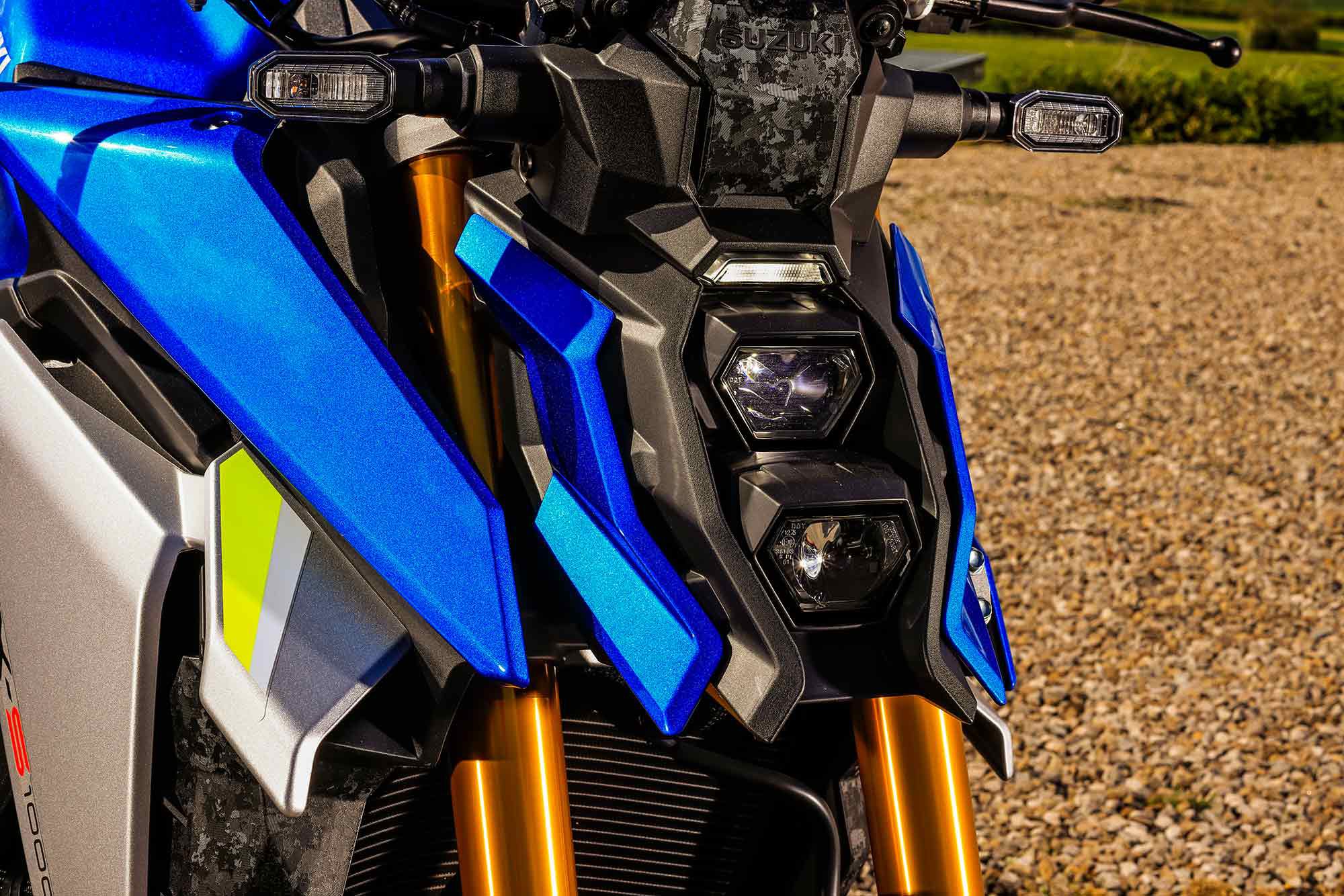
The 2021 motor also revs 1,000 rpm higher to its soft rev limiter, helping to make the GSX-S quicker than I was anticipating as well as more fun. With the TC disabled, which can be done on the move, a whiff of clutch will send the front wheel skyward in the first two gears, and even in third with only mild provocation. Yes, it’s an older, no-nonsense engine but one that makes this value-based supernaked both usable and enjoyable—happy to drive along using its torque or hang onto its revs like much sportier machinery. And, as a cherry on top, it belts out a charismatic and meaty induction roar like a GSX-R sportbike.
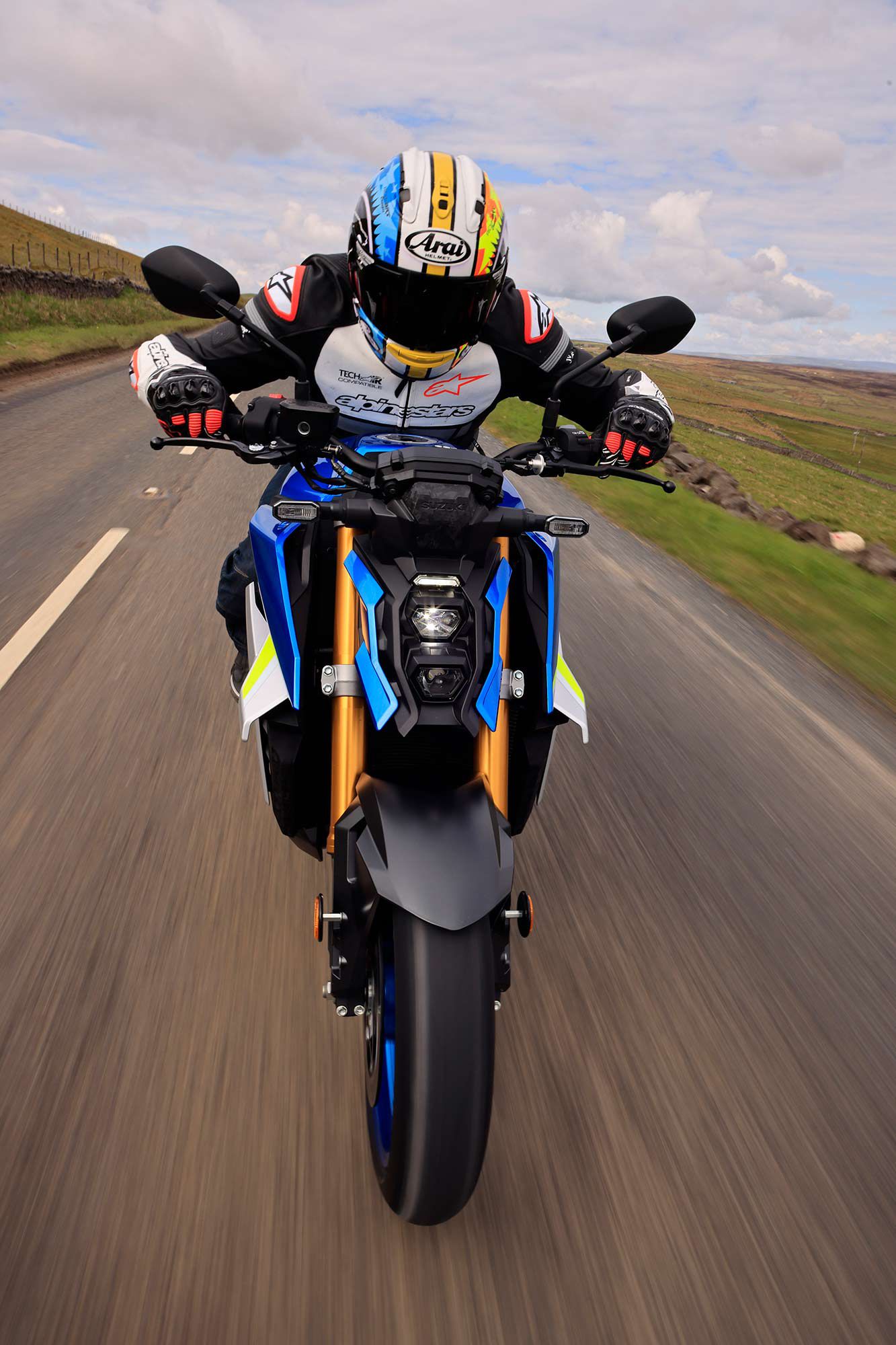
There are three uncomplicated riding modes to choose from, all of which change the engine character and power curves but still give full power. These SDMS modes were called A, B, and C, and now someone has decided they are Active, Basic, and Comfort.
Suzuki has in the past been criticized for having harsh and sometimes aggressive fueling and A, or Active, is still a little too sharp, so I opted for the softer B mode on the road and track. C, sorry, Comfort delivers a much milder map and throttle response and would be ideal for inexperienced riders, or when road conditions are difficult.
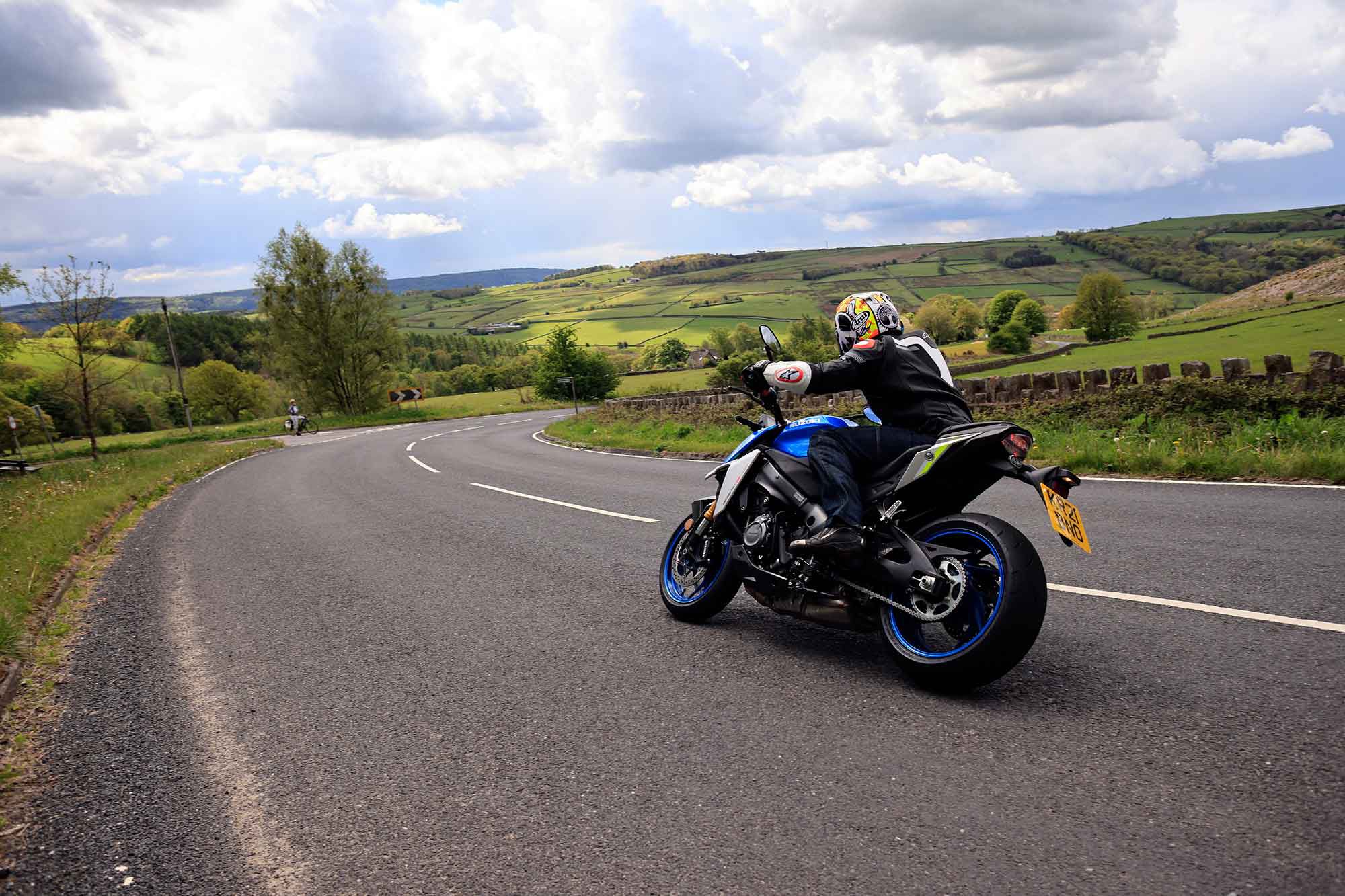
The suspension units on the 2021 GSX-S are similar to the preceding model’s, but with revised settings to account for the uprated bike’s extra weight (see below) and torque, as well as the improved grip offered by new Dunlop Sportmax Roadsmart II rubber.
Adding LED headlights, a Euro 5 exhaust system, and a larger fuel tank (up 0.8 gallon to 5 gallons) has also added weight, 15 pounds to the Suzuki. Despite gaining a few pounds in its old age, the Suzuki still steers well, and that weight lends a robust feel to the handling.
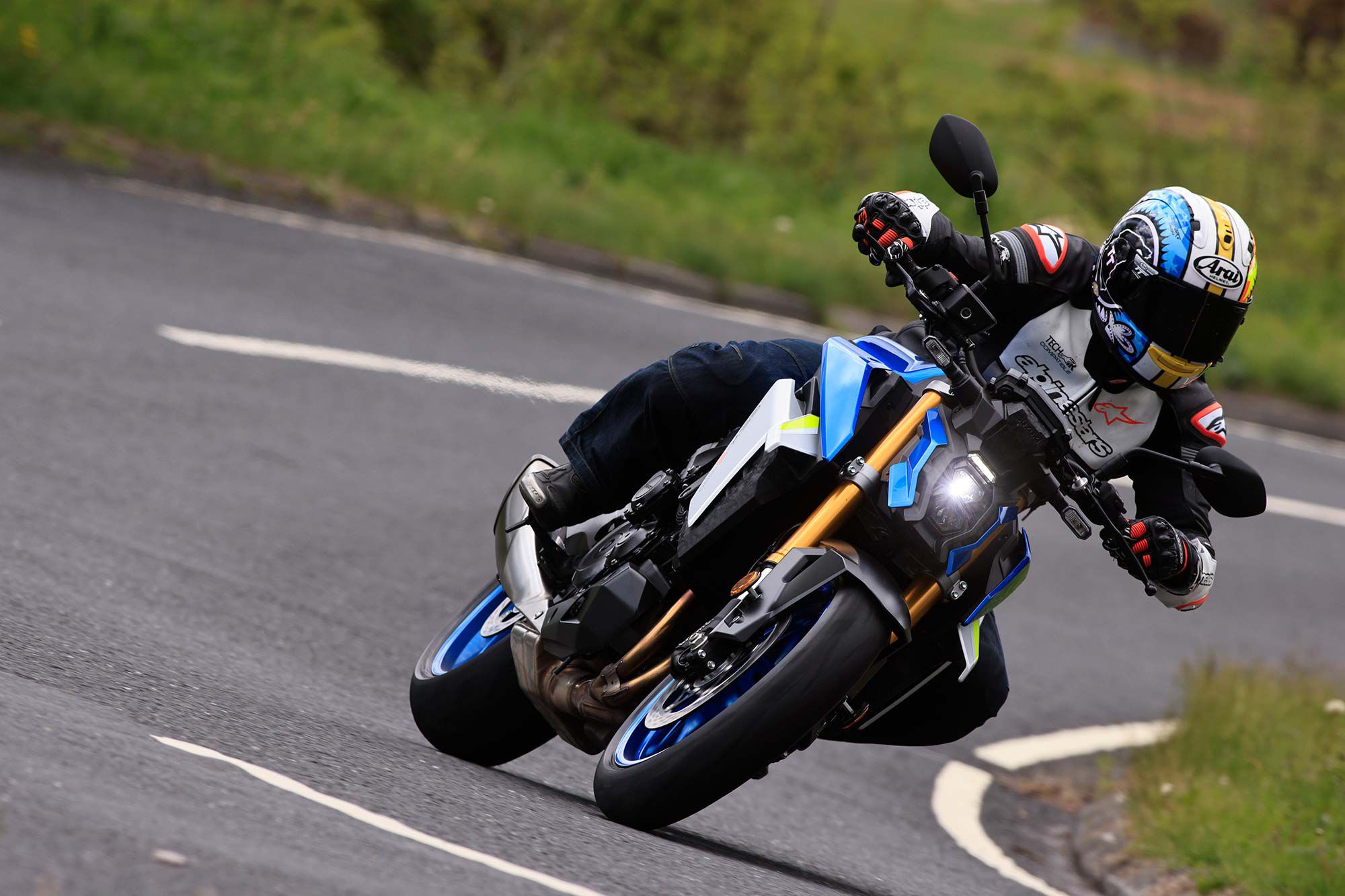
The showroom settings work effectively during normal riding, with the fully adjustable 43mm KYB fork particularly impressive, especially considering the showroom price. But hit some undulations at speed, and the rear shock sits like an obedient dog. Throw in some fast, bumpy corners and you’re getting toward its limits.
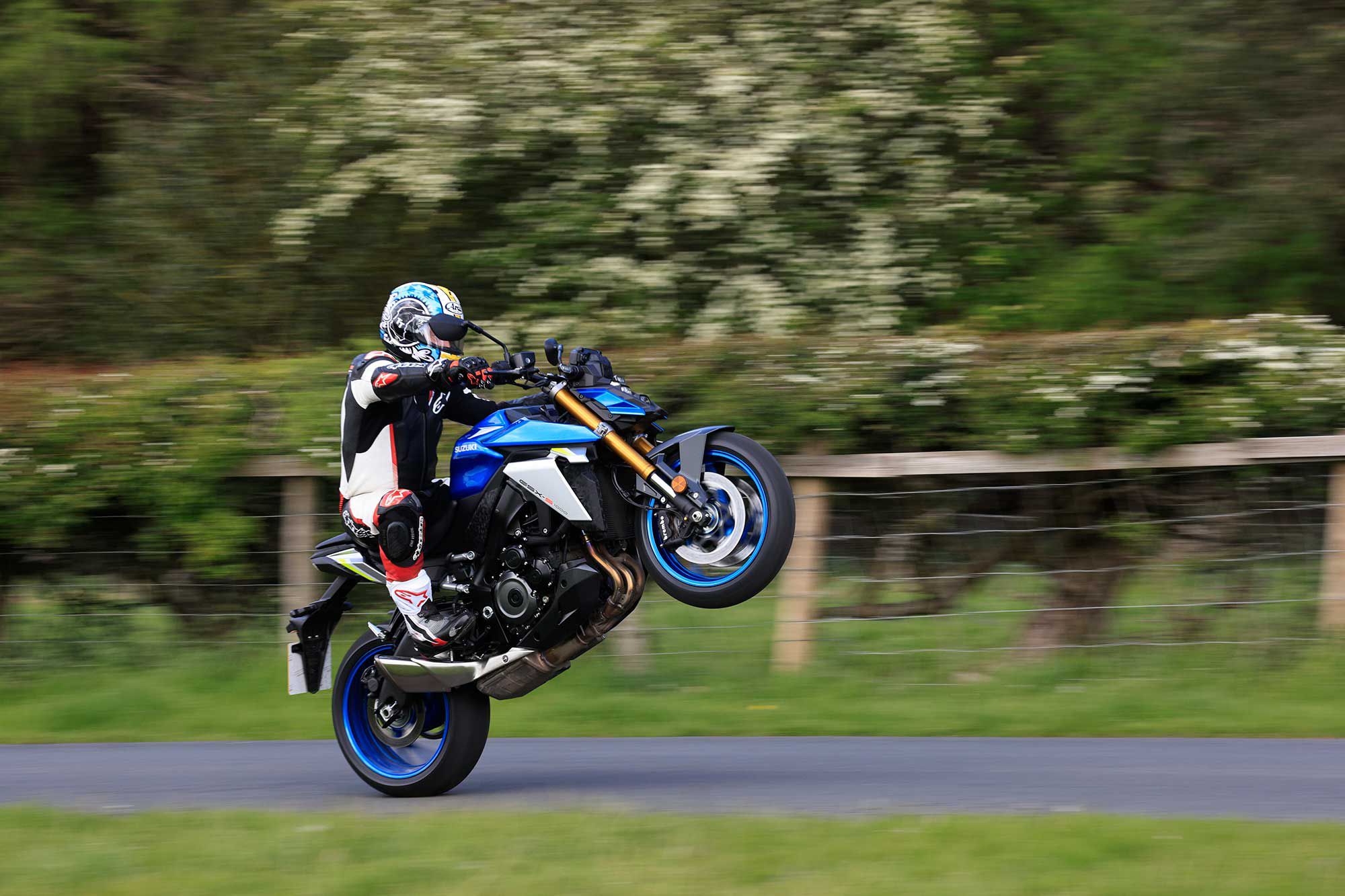
Changing into race leathers, I was concerned the GSX-S1000 would be out of its depth on the hill climb track Suzuki had prepared as part of this road test. But the GSX-S handled the challenge with surprising composure. Again, the steering was accurate, the fork didn’t bottom out during fierce braking, and everything felt controlled and well-managed, even if the ABS chimed in a little early for track riding. On a smooth surface, the Roadsmart IIs remained unfazed while that rear shock gave enough feedback to allow me to get on the power sooner. The footpegs eventually started scraping, reminding that this is by no means a track-focused naked, but considering its weight, power, and price, Suzuki has done an excellent job of setting the bike up for all eventualities.
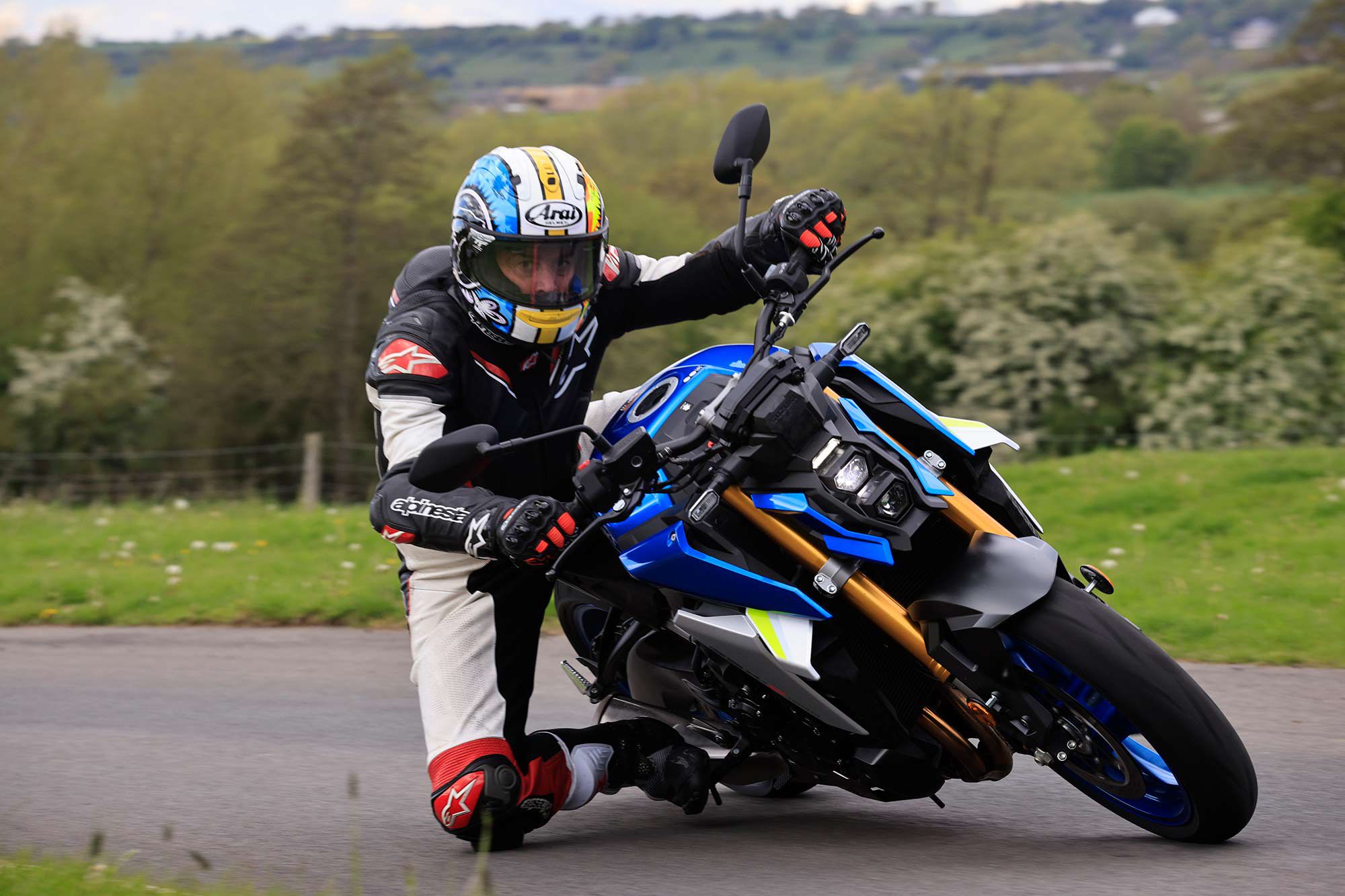
The Suzuki is priced competitively but doesn’t have a cheap appearance or finish, and, in the flesh, the new aggressive styling and the stacked LED headlights look great. I even like the “camo” finish on some of the plastics.
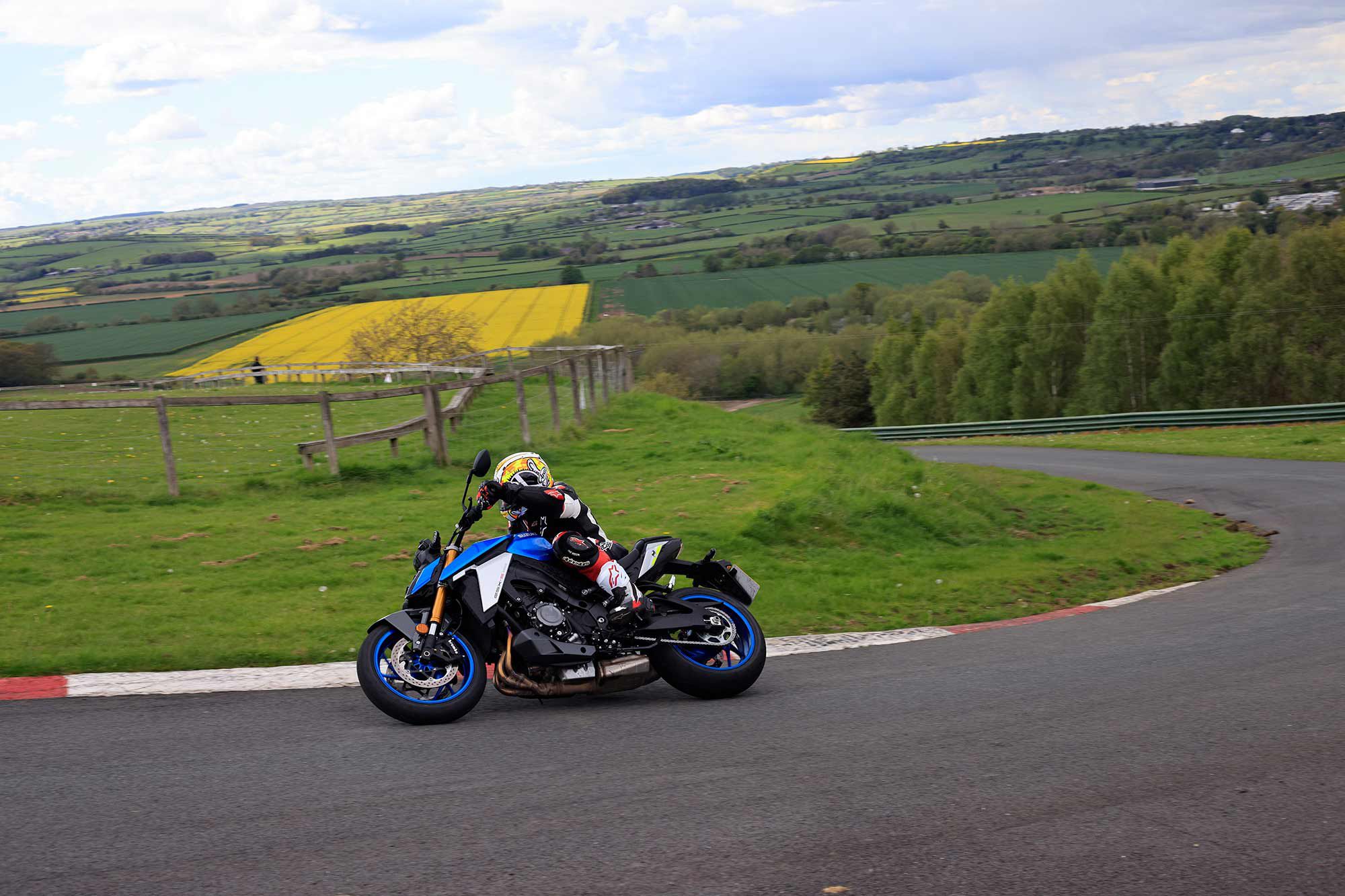
Our road ride was only 100 miles long and, obviously, we’d like to add more distance before categorically commenting on long-range comfort. However, it’s nice to see Suzuki has fitted a proper seat rather than a race seat like some of the competition—and the pillion even gets a reasonable-looking perch. Out of all the bikes in this category, and based on a first impression, the Suzuki is scoring highly for those who spend a considerable time in the saddle.
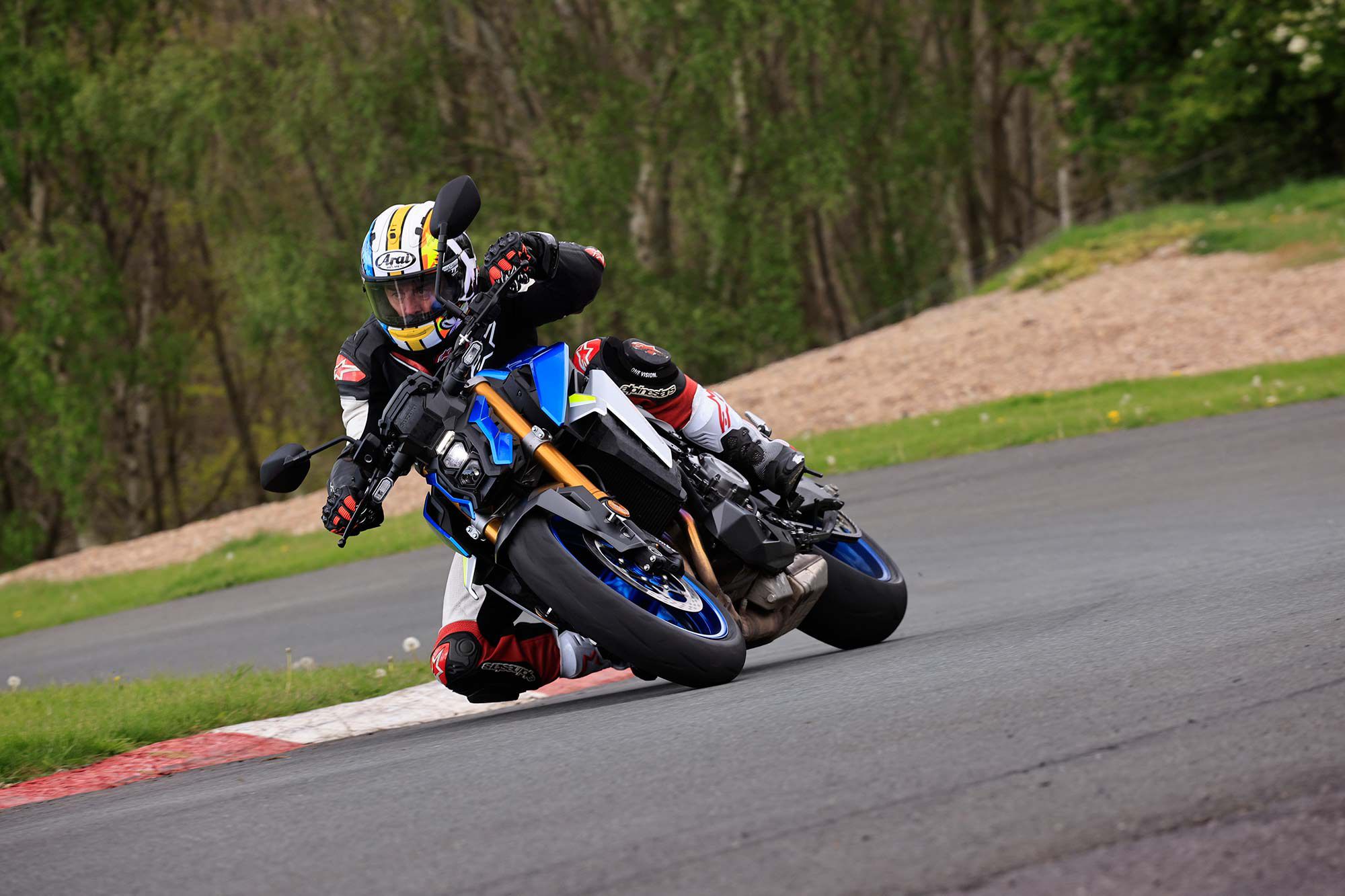
With no IMU to determine lean angle and no lean-sensitive rider aids, it’s conventional ABS and wheel speed sensor-enabled traction control only for the GSX-S. Suzuki has included uncomplicated and easy-to-use multifunctional clocks, that up-and-down quickshifter, which works perfectly, and, as ever, Suzuki’s Easy Start and Low RPM Assist, which increases the revs slightly as you release the clutch.
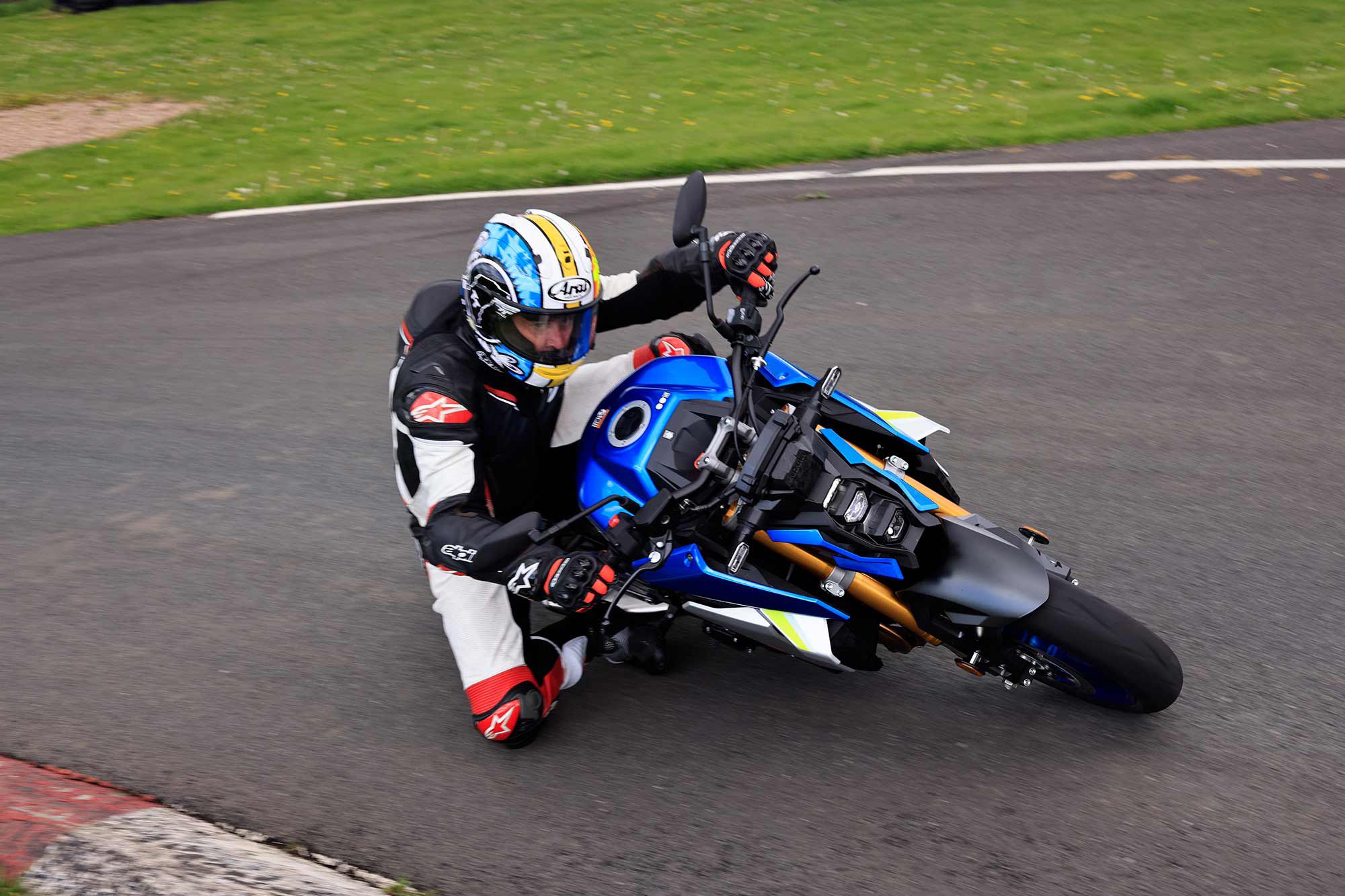
Verdict
Suzuki hasn’t made a colossal leap forward with the GSX-S. Delivering a reasonably priced, desirable, and usable naked road bike was key—which is exactly what it has done. The 150 hp GSX-S is more than competent on the road and even on track—up to a point. An abundance of torque, electronic rider aids that are just about sufficient, and an aggressively competitive price point make this a tempting machine. You could argue it’s basic and lacking in spec—and some riders who are coming down from superbikes may be put off by this—but I imagine most riders will like its minimalism and everyday usability.
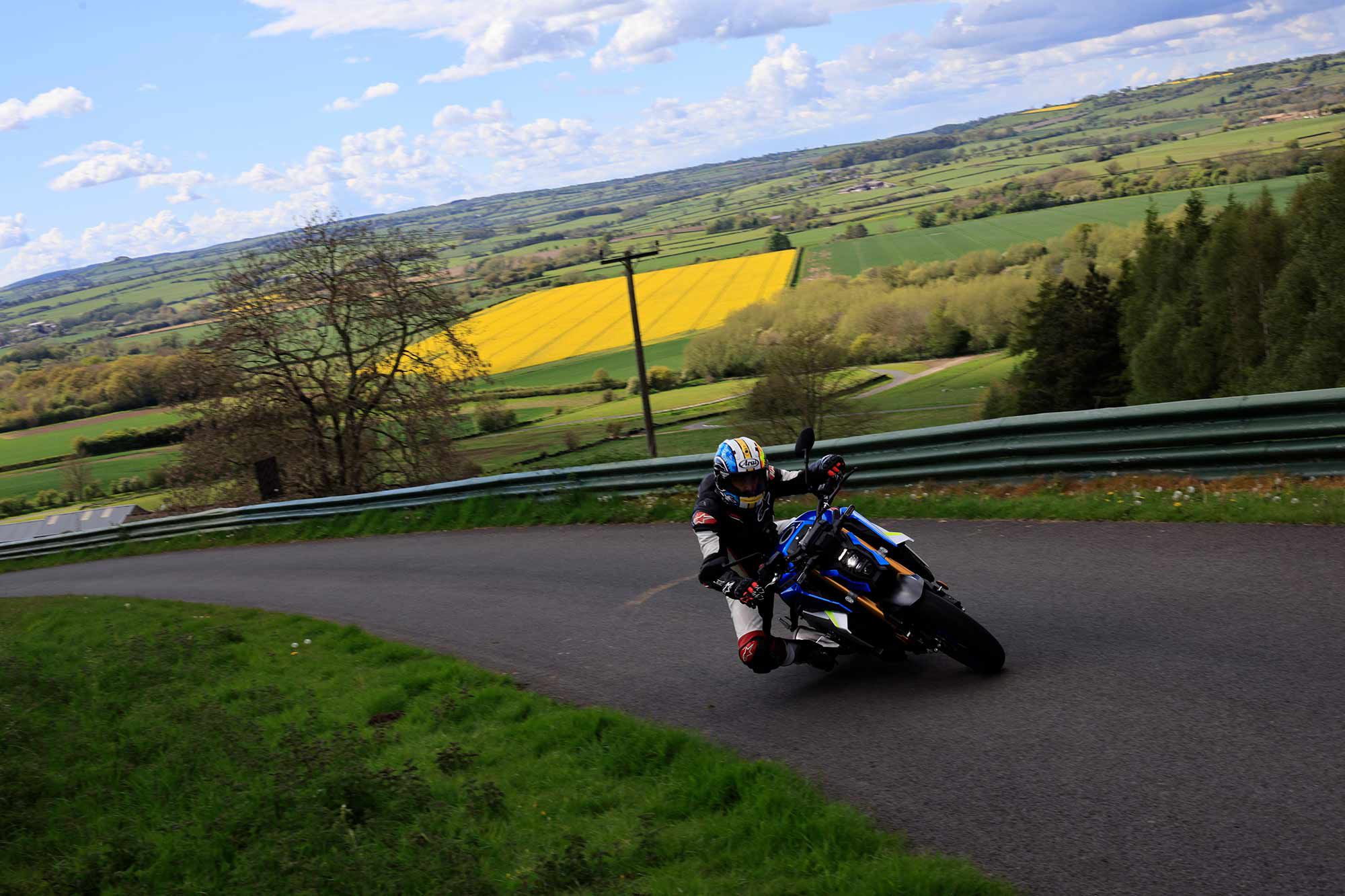
2022 Suzuki GSX-S1000 Technical Specifications and Price
| PRICE | £10,999, U.S. price TBD |
| ENGINE | 999cc, DOHC, liquid-cooled 4-cylinder; 4-valves/cyl. |
| BORE x STROKE | 73.4 x 59.0mm |
| COMPRESSION RATIO | 12.2:1 |
| FUEL DELIVERY | Fuel injection w/ 40mm throttle bodies; ride-by-wire |
| CLUTCH | Wet, multiplate slipper/assist; cable actuation |
| TRANSMISSION/FINAL DRIVE | 6-speed/chain |
| CLAIMED HORSEPOWER | 150 bhp @ 11,000 rpm |
| CLAIMED TORQUE | 78 lb.-ft. @ 9,250 rpm |
| FRAME | Aluminum twin spar |
| FRONT SUSPENSION | Fully adjustable 43mm inverted fork; 4.7 in. travel |
| REAR SUSPENSION | Preload and rebound adjustable shock; 5.1 in. travel |
| FRONT BRAKE | Brembo radial 4-piston caliper, dual 310mm discs w/ ABS |
| REAR BRAKE | Nissin 1-piston floating caliper, 240mm disc w/ ABS |
| WHEELS, FRONT/REAR | Alloy; 17 x 3.5 in. / 17 x 6.0 in. |
| TIRES, FRONT/REAR | Dunlop Sportmax Roadsport 2; 120/70-17, 190/50-17 |
| RAKE/TRAIL | 25.0°/3.9 in. |
| WHEELBASE | 57.5 in. |
| SEAT HEIGHT | 31.9 in. |
| FUEL CAPACITY | 5.0 gal. |
| CLAIMED CURB WEIGHT | 472 lb. |
| WARRANTY | 1-year, unlimited mileage |
| AVAILABLE | ???? 2021 |
| CONTACT | suzukicycles.com |
Source: MotorCyclistOnline.com
